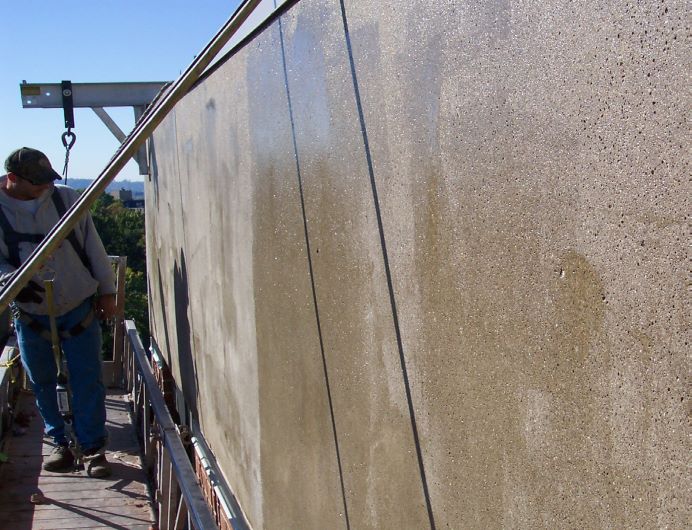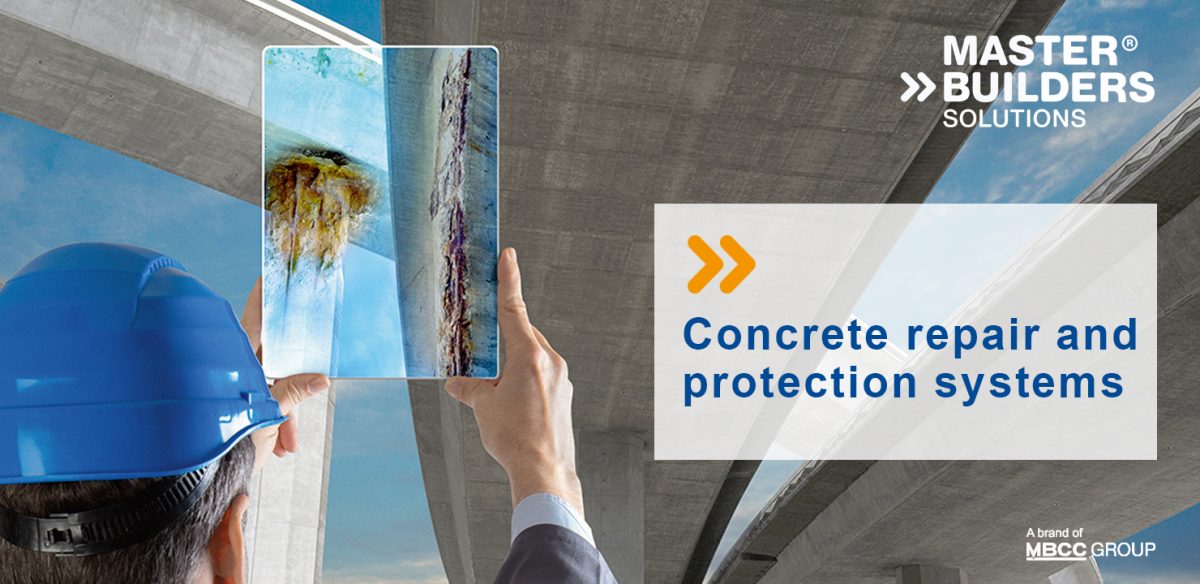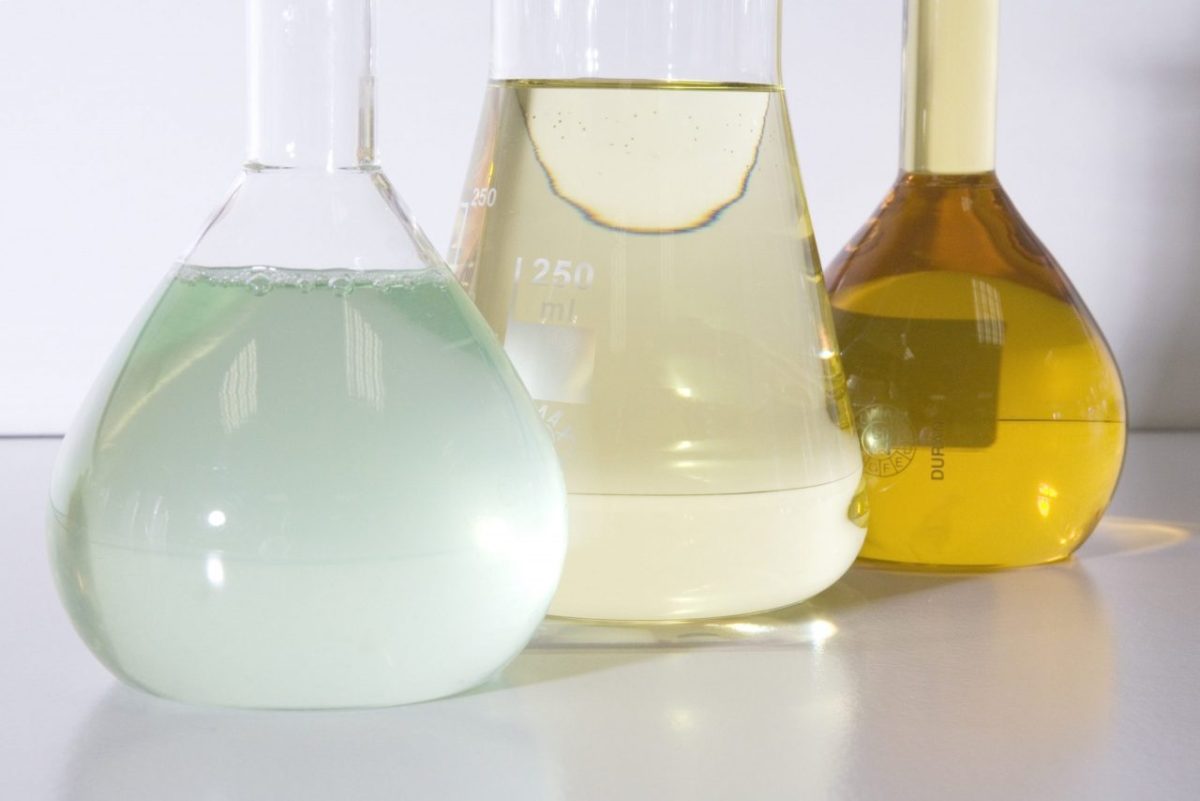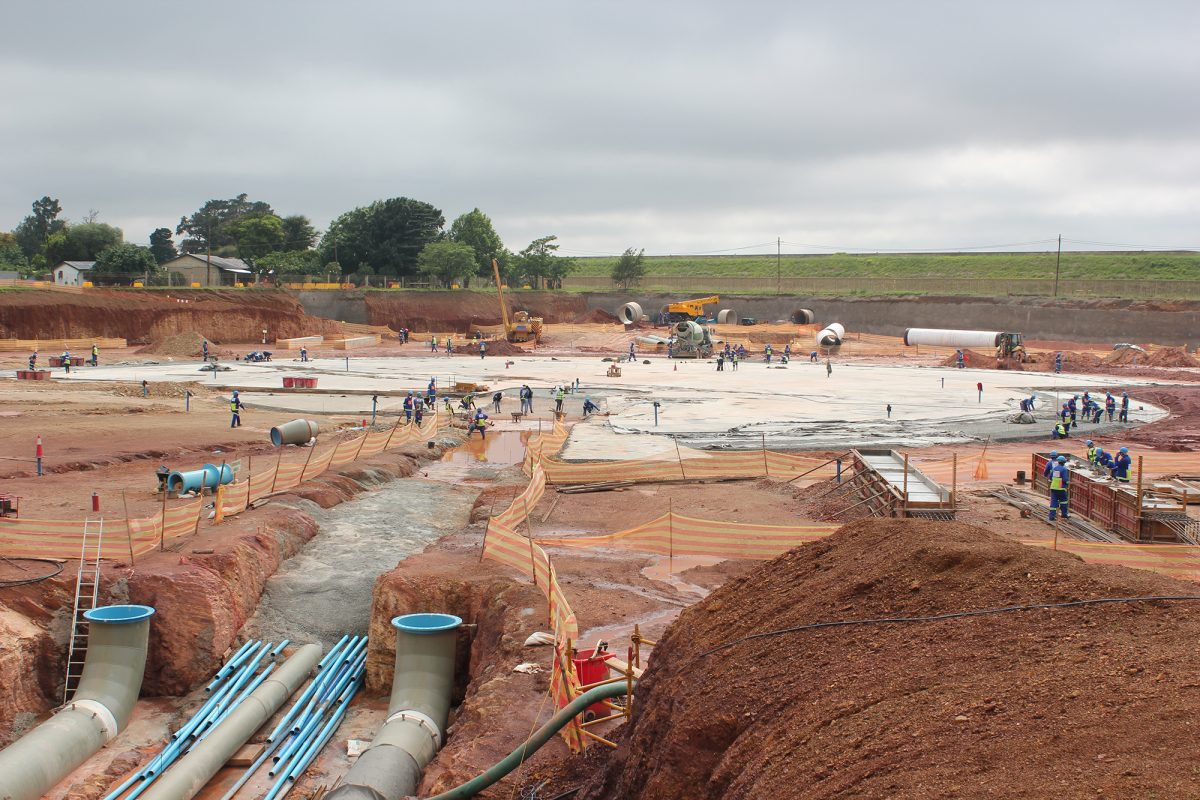
What can be done when corrosion protection is needed in a reinforced concrete structure that holds drinking water or is located in an environmentally sensitive waterway? Due to the possibility of harmful chemicals leaching into water, contractors are limited on which products they can apply to concrete elements in contact with potable water. Fortunately, Cortec Corporation offers a variety of Migrating Corrosion Inhibitor products that are certified to meet ANSI/NSF Standard 61 for use in drinking water system components.
How Migrating Corrosion Inhibitors Work
Migrating Corrosion Inhibitors (MCIs) can be admixed into new concrete and repair mortar or topically applied to existing concrete as a surface applied corrosion inhibitor (SACI). MCI molecules migrate through concrete pores and are attracted to metal surfaces, such as rebar, where they form a molecular protective layer considered to be ambiodic, or mixed, meaning it inhibits corrosion reactions at both the anode and cathode of a potential corrosion cell.
MCI Admixtures for Drinking Water Components
MCI admixtures are sometimes desired for extra protection in potable water reservoirs, prefab pipe segments for transporting seawater to desalination plants, brine holding tanks, and seawalls in sensitive areas where there are leachate concerns. MCI admixtures certified to meet NSF Standard 61 for use in drinking water system components include the following:
- MCI-2005 – A liquid corrosion inhibiting admixture. MCI-2005 is a USDA Certified Biobased Product that can be mixed into new concrete on the jobsite or at the batching plant. MCI-2005 retards set time, making it a welcome alternative to calcium nitrite on extremely warm days.
- MCI-2005 NS – A normal set version of MCI-2005 that does not accelerate or retard set time.
- MCI-2006 NS – A powder MCI admixture that does not accelerate or retard set time. It is often used in repairs.
MCI SACIs for Drinking Water Components
MCI SACIs are typically sprayed onto existing concrete and migrate deeper over time. They can be a great option when application errors in the construction of potable water holding tanks have left a thinner concrete cover than intended and additional corrosion protection is needed. They can also be used for periodic maintenance on structures (e.g., concrete water towers) that were not initially specified with MCI admixtures but where there is a corrosion concern. The following SACIs are among those certified to meet NSF Standard 61 for use in drinking water system components:
- MCI -2020 – A water-based, highly concentrated dose of Migrating Corrosion Inhibitors.
- MCI-2018 – Migrating Corrosion Inhibitors combined with a 100% silane-based water repellent (a waterproofing membrane should be used when the component will be under hydrostatic pressure).
Extend Service Life of Concrete Potable Water Structures
Corrosion in reinforced concrete structures leads to costly repairs, interrupting the intended use of the structure and potentially reducing its service life. Specifying an admixture in new drinking water system components at risk for corrosion or periodically applying a maintenance dose of MCI SACIs to existing tanks and structures can be an excellent way to slow down the natural deterioration processes of corrosion in drinking water system components where higher safety standards exist.
More news
- CELEBRATING EXCELLENCE IN THE RESIDENTIAL PROPERTY SECTOR
- PART 4: GIBS PANEL DISCUSSES INTEMEDIATE CITIES ROLE IN AFRICA’S DEVELOPMENT
- EXPOSED AGGREGATE PAVERS COMPLEMENT NEW LIFESTYLE CENTRE
- GIBS PANEL EXPLORES ROLE OF INTERMEDIATE CITIES IN SA’S DEVELOPMENT PART 3
- CITI-CON’S CONCRETE KNOWLEDGE SUCCESSFULLY DEPLOYED ON NEW LANDMARK DEVELOPMENT





